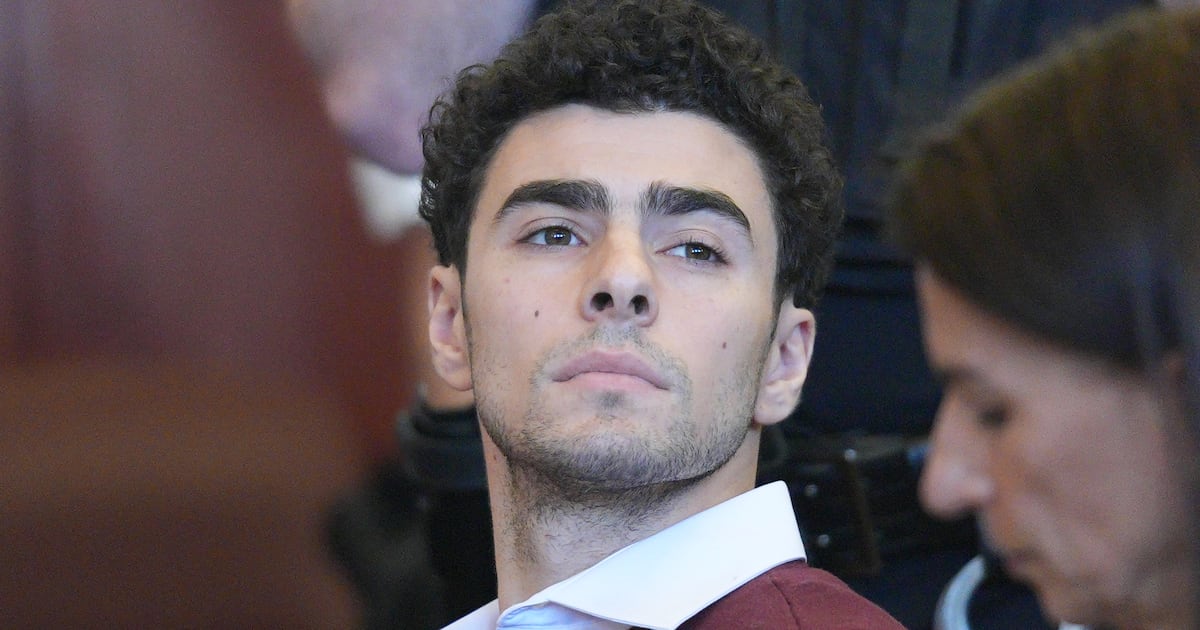Some GOP donors have been loath to publicly back attacks on Sen. Kelly Loeffler (R-GA) for fear that doing so will land them on the wrong side of powerful Republicans in Atlanta and Washington. But now, those donors have a way to go after the senator who finds herself at the heart of an insider-trading scandal without drawing the ire of party leaders: They can do it anonymously.
Loeffler is the party establishment’s pick to stay in the Senate seat in 2020, even as she faces a primary challenge from Rep. Doug Collins, a Trump loyalist with significant grassroots appeal. Loeffler enjoys the full-throated backing of Senate Majority Leader Mitch McConnell (R-KY) and his well-heeled political machine and Gov. Brian Kemp, who appointed Loeffler to the seat in December.
A new group has now entered the fray, and it’s trying to even the odds in a way that allows its financial backers to avoid the ire of McConnell, Kemp, and their formidable allies.
The group, Georgia Is Not for Sale, has only spent about $5,000 on Facebook ads so far. But according to a solicitation sent to potential donors and obtained by PAY DIRT, it has plans for a larger and more aggressive media operation, including more “widespread digital advertising investments” and “television and other mass media advertisements.”
It’s offering donors “investment opportunities to sponsor” those ad campaigns. And one of its selling points is that those donors can make those “investment opportunities” without having to reveal their names.
“Georgia Is Not for Sale needs investment partners like yourself to help us continue our work of holding our elected officials accountable,” the donor pitch says. “As a 501(C)4 not-for-profit organization, donors to GISNF are not publicly disclosed.”
That lack of disclosure is key to Georgia Is Not for Sale’s appeal for potential donors, a source with close ties to the group told PAY DIRT. The goal is to give deep-pocketed Collins supporters the opportunity to boost his primary prospects without opening themselves up to recriminiations from Kemp in particular.
“Even if people are reluctant to cross swords right now, we've seen real momentum in the past two weeks with people interested in supporting our efforts,” the source said. "Kelly Loeffler’s strength was always overrated, and this scandal has drastically weakened her position. Donors can read polls and they know this scandal has deeply impacted her for the simple reason that voters have lost trust in her.”
The scandal referred to there began when The Daily Beast reported last month that Loeffler had sold millions of dollars in stock in the immediate aftermath of a January closed-door briefing on the novel coronavirus, which subsequently sent U.S. equities plummeting.
Loeffler has denied any correlation between the briefing and the stock sales and insisted that the transactions were handled entirely by a third-party broker, who she still refuses to name. Last week, Loeffler announced she would be liquidating all individual stock holdings in her portfolio due to the controversy.
That controversy has nonetheless emboldened Collins and his supporters. His campaign’s polling has him leading Loeffler by 23 percentage points, according to an internal survey conducted this month.
Georgia Is Not for Sale was actually incorporated in early March, before news of Loeffler’s stock sales broke. Its name suggests that it initially planned to target the immense amounts of money that Loeffler, the Senate’s wealthiest member, has poured into her campaign. In late December, before she was even sworn in to the Senate, Loeffler loaned the campaign $5 million. She loaned it an additional $5 million on March 31, according to a Federal Election Commission filing on Wednesday, and has said she’d spend as much as $20 million of personal funds on her election effort.
A few weeks after the group was formed, Georgia Is Not for Sale was handed a new, far more potent line of attack. “Senator Loeffler is accused of betraying the public trust by using insider information regarding COVID-19 to make millions of dollars selling stocks while publicly assuring the people there was no need for alarm,” Jordan Russell, a spokesman for the group, told PAY DIRT. “The initial response to our petition demanding Sen. Loeffler’s resignation has been incredible. We are just getting started."
Georgia Is Not for Sale is technically a “social welfare” nonprofit, meaning it must spend less than half of its budget on outright politicking. But the rest can be devoted to activities that, while technically apolitical, nonetheless work to dent Loeffler’s standing in the eyes of Georgia voters—activities like petition drives and congressional call-in campaigns, both of which the group is pursuing aggressively.
Donors to Georgia Is Not for Sale will have to put up significant sums if they hope to dent Loeffler’s dollar advantage. Even putting aside Loeffler’s considerable personal financial contributions, her campaign enjoys a financial lead over Collins’. Quarterly FEC reports filed Wednesday show that Loeffler raised nearly $1.2 million from outside donors, while Collins brought in less than $850,000 (he transferred an additional $1.6 million from his House campaign committee).
As is typical for incumbents, Loeffler also enjoys far more backing than Collins does from corporate political action committees, which are often more eager to ingratiate themselves with sitting senators than their challengers. Loeffler raised more than $300,000 from those groups in the first quarter. Since Collins jumped into the Senate race on Jan. 29, he received just a single corporate PAC contribution, of $1,000 from the Nestle Purina PetCare Company.
But a deeper look at those numbers show Loeffler’s stock trade controversy may be shifting donor attitudes. In the 11 days after that story broke, Loeffler’s campaign raised about $151,000, FEC records show. The Collins campaign nearly matched that total during the same period, bringing in about $146,000.
The controversy is also drawing more deep pockets into the race on Collins’ behalf. On Wednesday, Great America PAC, a pro-Trump super PAC, endorsed Collins and signaled that it will devote some of its considerable financial resources to attacking Loeffler over her stock trades.
“In a very short time,” said Ed Rollins, Great America PAC’s chairman, “Kelly Loeffler has proven she puts protecting her personal wealth well before protecting her constituents. This type of behavior is exactly what’s wrong within the DC swamp and must be rooted out.”








